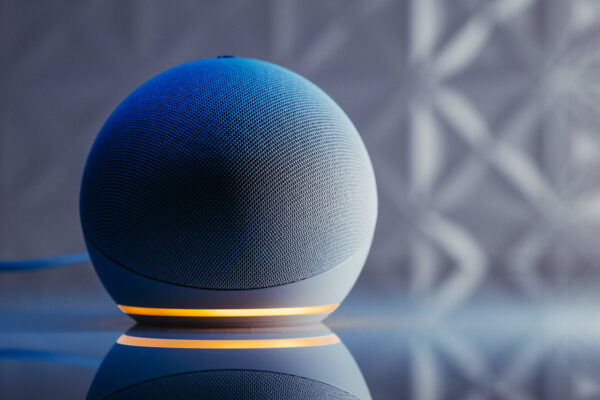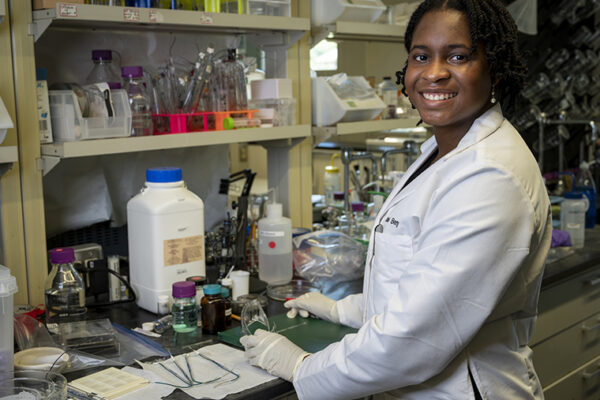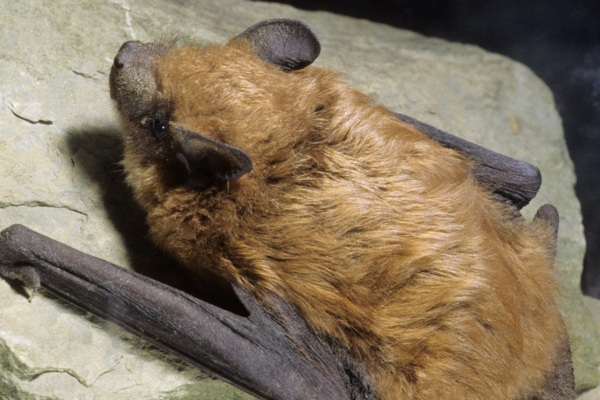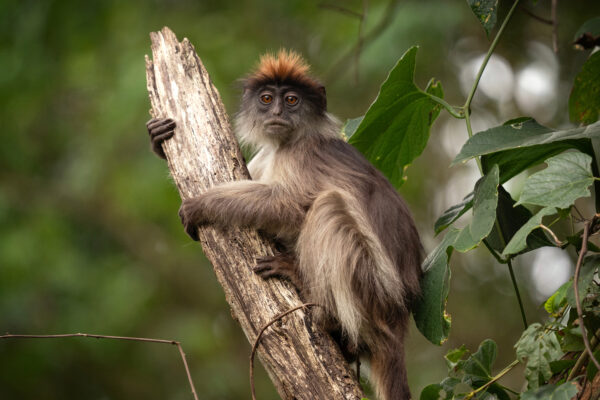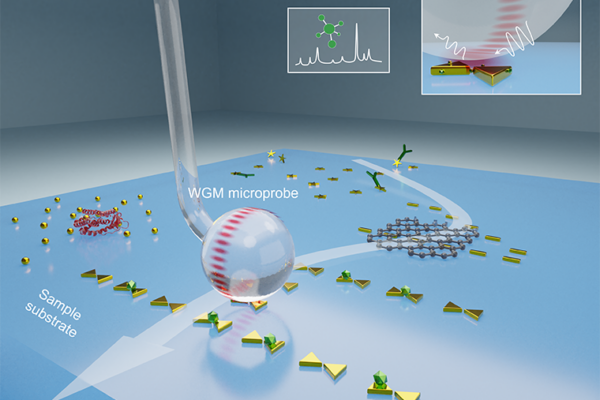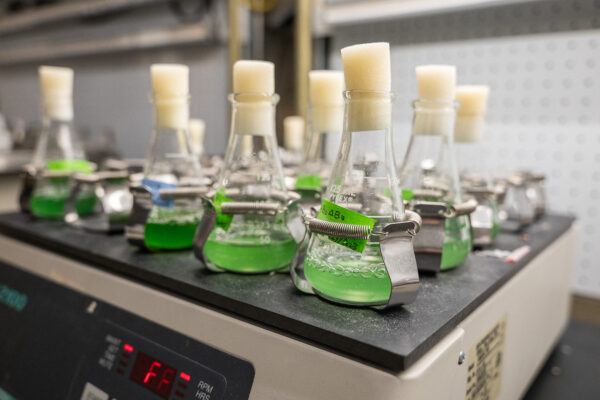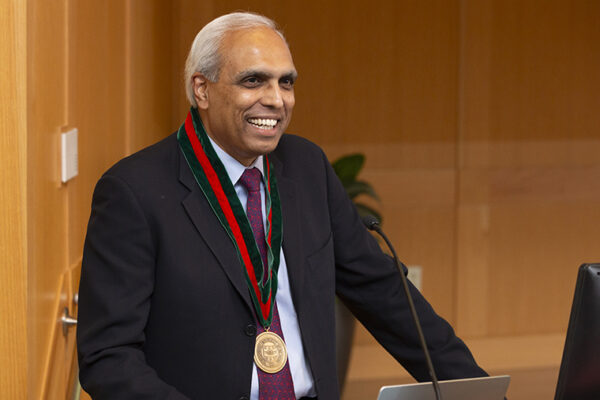Your smart speaker data is used in ways you might not expect
Amazon uses smart speaker interaction data to infer user interests and target ads in ways the company was not upfront about, according to research from Umar Iqbal at the McKelvey School of Engineering.
Graduate student Berry tackles chemistry of green energy
Ashlynn Berry is one of 60 graduate students from across the country — and the only one in Missouri — selected to participate in the Department of Energy’s Office of Science Graduate Student Research (SCGSR) fellowship program.
Not-so-spooky sounds: Audio recordings help ID urban bats
Washington University scientists have documented 10 different bat species in our area, including several threatened and endangered bats.
Mapping the cell’s membrane-less compartments
Washington University and St. Jude research groups have uncovered the rules for organization of cellular condensates implicated in ALS.
WashU team to study virus transmission, human-wildlife interaction
Red colobus monkeys are the most threatened group of African monkeys. With a grant from the National Institutes of Health (NIH), a Washington University team will model viral transmission dynamics among red colobus monkeys and their human neighbors near Kibale National Park, Uganda.
Ultrahigh-sensitivity microprobe detects molecular fingerprints
A team led by Lan Yang at the McKelvey School of Engineering developed a novel whispering-gallery-mode microprobe that optimizes detection of molecular fingerprints.
Grant funds green fertilizer research at WashU
Biologist Himadri Pakrasi in Arts & Sciences, who studies how cyanobacteria contribute to the chemistry of life, will lead a $5 million effort to develop technology to convert atmospheric nitrogen into fertilizer. Yinjie Tang and Yixin Chen at the McKelvey School of Engineering are co-investigators on the project.
Book showcases digital innovation in WashU chemistry instruction
“Digital Learning and Teaching in Chemistry,” co-edited by Gabriela Mirowitz in Arts & Sciences, features WashU chemistry instructors and explores high-tech approaches to learning beyond the lab.
Pappu installed as Gene K. Beare Distinguished Professor of Biomedical Engineering
Rohit V. Pappu, an internationally renowned researcher in biomolecular condensates and intrinsically disordered proteins, was installed Oct. 9 as the Gene K. Beare Distinguished Professor of Biomedical Engineering at the McKelvey School of Engineering.
AI for Health Institute launches to promote growing intersection of artificial intelligence, health
Washington University has launched the AI for Health Institute to design data-driven tools to characterize complex diseases, support clinical decisions and drive precision health. The institute was introduced at the AI & Digital Health Summit, held Oct. 18-19 at the university.
View More Stories
